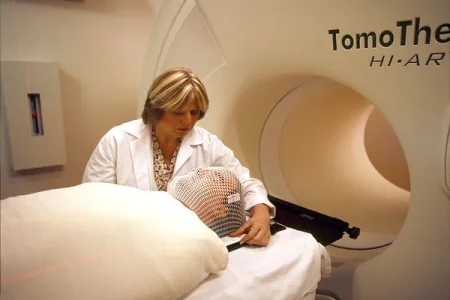
Image Credit: Rhoda Baer (Photographer)
A team of UK scientists has discovered blood proteins associated with 19 cancer types, including some that could signal the disease more than seven years before diagnosis, offering a game-changing opportunity for early detection and intervention.
In this groundbreaking discovery, scientists in the UK claim to have identified proteins in the blood that could warn individuals of cancer more than seven years before an official diagnosis. Through two studies funded by Cancer Research UK, the researchers identified 618 proteins linked to 19 different types of cancer, including colon, lung, non-Hodgkin lymphoma, and liver cancer.
The first study analyzed blood samples from more than 44,000 people in the UK Biobank, including over 4,900 individuals who subsequently received a cancer diagnosis. By comparing the proteins present in those who developed cancer and those who did not, the researchers found 107 proteins associated with cancers diagnosed more than seven years after the blood sample was collected, and 182 proteins linked to a cancer diagnosis within three years.
In the second study, the scientists examined genetic data from over 300,000 cancer cases to identify which blood proteins were involved in cancer development and could potentially be targeted by new treatments. They discovered 40 proteins in the blood that influenced an individual's risk of developing nine different types of cancer.
The researchers concluded that some of these identified proteins could be utilized to detect cancer much earlier than current methods, potentially providing new treatment options. However, they cautioned that further research is still needed to validate and refine these findings.
Ruth Travis, the senior author of both studies, emphasized the significance of understanding the factors driving the earliest stages of cancer development to enable effective prevention strategies. She highlighted the importance of leveraging advanced technology to analyze thousands of proteins across thousands of cancer cases, identifying those with a role in the development of specific cancers and potential effects common to multiple cancer types.
This groundbreaking research holds immense promise for revolutionizing cancer screening and early detection, potentially improving survival rates and treatment outcomes by enabling earlier interventions when the disease is most responsive to therapy.
Send Message
3 Sonnet




